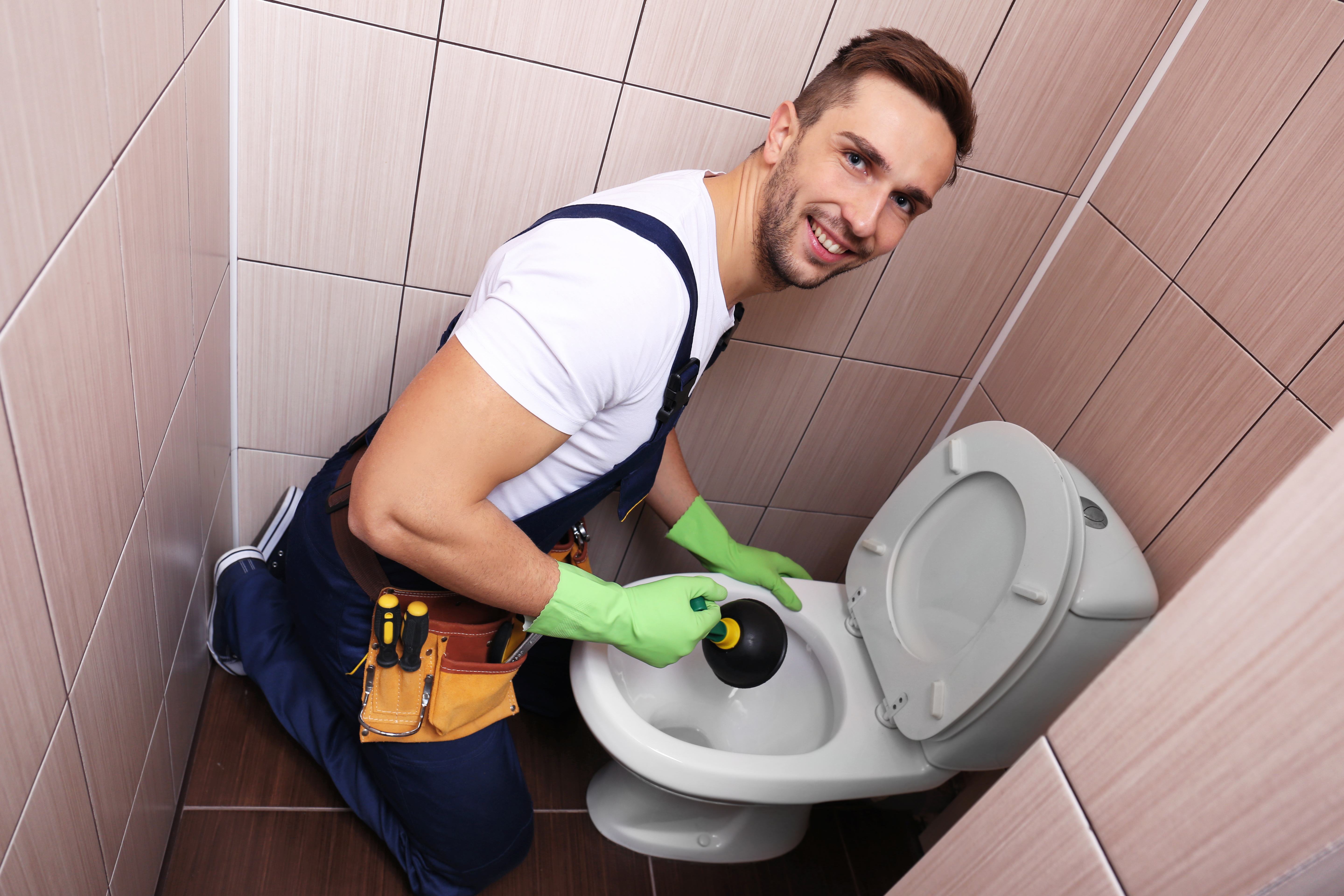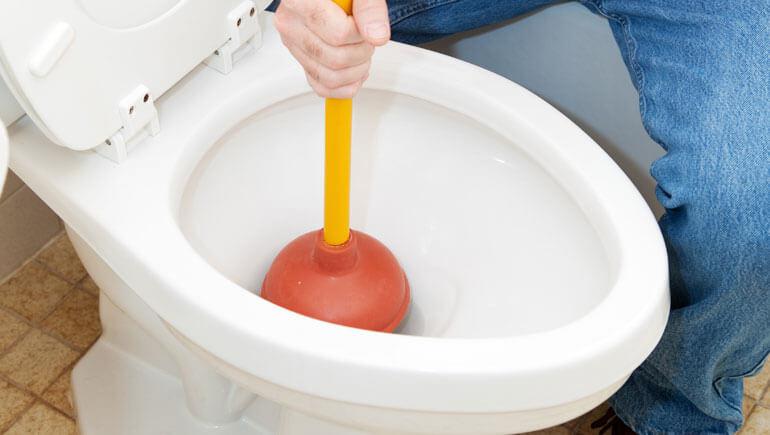How to Effectively Utilize Plunger and Drain Cleaner: Specialist Advice
How to Effectively Utilize Plunger and Drain Cleaner: Specialist Advice
Blog Article
The article author is making several good points relating to Here's How to Correctly Use a Toilet Plunger overall in this content down below.

Intro
Appropriate maintenance of house drains pipes is crucial for preventing blockages and making certain smooth water circulation. Among the trick tools in every house owner's toolkit is the bettor, together with numerous drainpipe cleaners made to deal with stubborn clogs efficiently. This write-up explores how to make use of plungers and drainpipe cleansers properly to maintain your drains pipes streaming easily.
Section 1: Comprehending Plungers
Kinds of Plungers
There are a number of sorts of bettors available, each created for various kinds of drains pipes and obstructs. The most usual kinds consist of cup plungers, flange plungers, and accordion plungers.
How Plungers Job
Plungers service the principle of developing pressure and suction to displace clogs. When effectively used over a drainpipe, they create a vacuum cleaner that can take out particles or separate clogs.
Selecting the Right Bettor
Picking the appropriate bettor depends on the kind of drain and the nature of the blockage. Cup bettors are perfect for sinks and tubs, while flange bettors are better matched for commodes due to their layout.
Typical Blunders with Plungers
Avoiding these blunders guarantees efficient plunging: inappropriate seal around the drain, insufficient pressure, and unclear surrounding particles.
Area 2: Utilizing Plungers Effectively
Prep work
Before plunging, ensure the bettor covers the drain totally and creates a tight seal. Clear any type of noticeable particles around the drainpipe opening.
Strategy
Start with gentle plunging activities to construct suction. Boost pressure progressively, making use of a stable rhythm. Repeat as essential till the drainpipe gets rid of.
Fixing Tips
If plunging does not work, attempt readjusting the seal, applying petroleum jelly for a far better seal, or using a different sort of plunger.
Area 3: Recognizing Drain Cleaners
Sorts Of Drainpipe Cleaning Company
Drain cleaners can be chemical or enzymatic. Chemical cleaners use strong chemicals to liquify obstructions, while enzymatic cleaners make use of all-natural enzymes to break down organic matter.
How Drainpipe Cleansers Work
Chemical cleansers respond with obstructions to liquify them, while chemical cleansers break down natural products like hair and grease without damaging pipes.
Safety Factors to consider
Always wear handwear covers and eye security when making use of chemical drain cleansers. Make sure adequate ventilation and follow supplier instructions very carefully.
Eco-Friendly Alternatives
Consider using vinegar and baking soda or enzyme-based cleaners for eco-friendly options that are safer for pipelines and the environment.
Area 4: Making Use Of Drain Cleaners Effectively
Application Techniques
Put chemical cleaners directly into the drainpipe opening. Enable them to work for the advised time before purging with hot water. Enzymatic cleansers should rest overnight.
Preventative measures
Prevent mixing various sorts of cleaners, as this can create toxic fumes. Never ever use chemical cleansers along with a plunger, as splashing can occur.
Managing Persistent Blockages
For relentless clogs, think about using a pipes snake or calling an expert plumbing technician to prevent damage to pipes.
Conclusion
To conclude, recognizing how to utilize bettors and drain cleaners efficiently is important for keeping healthy pipes systems. By selecting the right tools and methods, homeowners can tackle minor clogs and prevent significant pipes concerns down the line.
How To Properly Use A Plumbing Snake To Clear Drains
When any drain clogs in our home arise, we tend to gravitate toward the plunger and little else. In cases where the plunger and its vacuum-created pressure are not able to clear clogs, many immediately move to harmful chemicals or simply call their plumber to fix the issue.
we’re happy to help with all drain cleaning needs and concerns. This includes informing you on a few other home remedies you may have at your disposal for minor to moderate clogs, one of which is the use of a plumbing snake. Many people have never used one of these before – let’s go over the steps to take when your drain clogs and you have a plumbing snake available.
Attempt Plunger Use
The first step here, as we noted above, should indeed be to grab your plunger when you notice a drain clog and attempt to resolve it this way. If you’re unsure how to use a particular type of plunger, our plumbers can answer any questions you have. If this doesn’t do the trick, however, you move on to the snake.
Locate And Prepare Snake
A plumbing snake is a metal or plastic device that’s generally about a quarter of an inch thick. It’s design with significant extensions, meant to reach down into your clogged drain and push the clog out. Snakes also contain drain augers that will latch onto and push stubborn blockages.
If your plunger doesn’t clear a clog, locate your snake and bring it to the drain in question. We also recommend keeping a bucket nearby to collect the clog once you pull it out, plus we’d advise wearing goggles and possibly protective gloves.
Feed Snake
Once you’re ready to go, feed the snake slowly down the drain, using the crank device it comes with to keep it moving until it finds the clog. Once this happens, much of the clog will be latched onto the coil so you can pull it out, while the rest will simply break up and flow downward.
Detach Debris
Remove the snake slowly from the drain, and once you’ve done so, pick off any debris that’s stuck to the coil. This is another area where wearing gloves is a must.
Flush Drain
Finally, take a few minutes to ensure the snake has done its job correctly. If you’ve been using it on a toilet, flush the toilet a couple times and make sure everything flows well. If you’ve used it on a different drain, flush it with some room temperature water.
https://www.mybuddytheplumber.com/blog/how-to-properly-use-a-plumbing-snake-to-clear-drains/

Application Techniques
Put chemical cleaners directly into the drainpipe opening. Enable them to work for the advised time before purging with hot water. Enzymatic cleansers should rest overnight.
Preventative measures
Prevent mixing various sorts of cleaners, as this can create toxic fumes. Never ever use chemical cleansers along with a plunger, as splashing can occur.
Managing Persistent Blockages
For relentless clogs, think about using a pipes snake or calling an expert plumbing technician to prevent damage to pipes.
Conclusion
To conclude, recognizing how to utilize bettors and drain cleaners efficiently is important for keeping healthy pipes systems. By selecting the right tools and methods, homeowners can tackle minor clogs and prevent significant pipes concerns down the line.
How To Properly Use A Plumbing Snake To Clear Drains
When any drain clogs in our home arise, we tend to gravitate toward the plunger and little else. In cases where the plunger and its vacuum-created pressure are not able to clear clogs, many immediately move to harmful chemicals or simply call their plumber to fix the issue.
we’re happy to help with all drain cleaning needs and concerns. This includes informing you on a few other home remedies you may have at your disposal for minor to moderate clogs, one of which is the use of a plumbing snake. Many people have never used one of these before – let’s go over the steps to take when your drain clogs and you have a plumbing snake available.
Attempt Plunger Use
The first step here, as we noted above, should indeed be to grab your plunger when you notice a drain clog and attempt to resolve it this way. If you’re unsure how to use a particular type of plunger, our plumbers can answer any questions you have. If this doesn’t do the trick, however, you move on to the snake.
Locate And Prepare Snake
A plumbing snake is a metal or plastic device that’s generally about a quarter of an inch thick. It’s design with significant extensions, meant to reach down into your clogged drain and push the clog out. Snakes also contain drain augers that will latch onto and push stubborn blockages.
If your plunger doesn’t clear a clog, locate your snake and bring it to the drain in question. We also recommend keeping a bucket nearby to collect the clog once you pull it out, plus we’d advise wearing goggles and possibly protective gloves.
Feed Snake
Once you’re ready to go, feed the snake slowly down the drain, using the crank device it comes with to keep it moving until it finds the clog. Once this happens, much of the clog will be latched onto the coil so you can pull it out, while the rest will simply break up and flow downward.
Detach Debris
Remove the snake slowly from the drain, and once you’ve done so, pick off any debris that’s stuck to the coil. This is another area where wearing gloves is a must.
Flush Drain
Finally, take a few minutes to ensure the snake has done its job correctly. If you’ve been using it on a toilet, flush the toilet a couple times and make sure everything flows well. If you’ve used it on a different drain, flush it with some room temperature water.
https://www.mybuddytheplumber.com/blog/how-to-properly-use-a-plumbing-snake-to-clear-drains/

Hopefully you liked our part about A Guide to Plungers (and How to Use Them). Many thanks for finding the time to read through our blog post. Sharing is good. Helping people is fun. We enjoy reading our article about How to Unclog Your Sink with a Plunger.
Apply Now Report this page